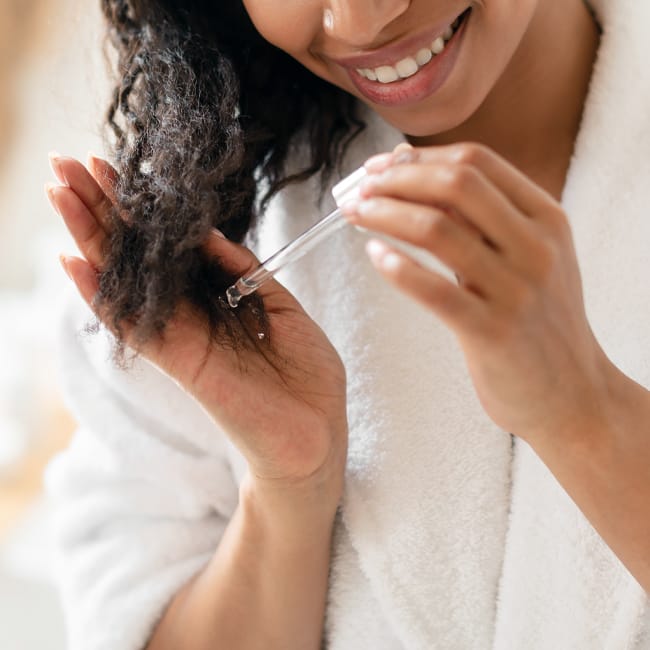For those seeking to give their skin the utmost importance and avoid premature wrinkles, an expert has divulged her top five preferred skincare ingredients and products to keep an eye out for.
Board-certified dermatologist Dr. Jenny Liu recently revealed her go-to “holy grail” items and the key components to incorporate into an anti-aging regimen, catering to various budgets. Read on to discover the breakdown of her recommendations, featured in a recent and highly viewed YouTube video.


5 Anti-Aging Skincare Products And Go-To Ingredients From A Dermatologist
1. Sunscreen
As her video began, Liu noted that "anti-aging is one of the most common concerns" she gets from patients as a dermatologist. She first stressed the importance of using sunscreen daily, all-year round for more supple and hydrated skin if anti-aging is something you are prioritizing.
The "first and by far arguably most important" ingredient and product to add to your skincare routine is sunscreen, she said, because "80 percent of skin aging is external and you can delay the onset of the signs of aging when you are properly protecting your skin against ultraviolet radiation and pollution."
She also said she gravitates towards "tinted mineral sunscreen" specifically, and that the sunscreen you choose can be in any budget range, it's just vital that you use it daily and that it has SPF protection.

2. Topical Retinoids
Next, Liu said that the second most important skincare ingredient and product to have in your bathroom for your skin is a topical retinoid. "In particular, tretinoin 0.05 is really the gold standard that has been studied the most."
How retinoids work in treating signs of aging, she says is "stimulating collagen production, thickening your skin over time, stimulates hyaluronic acid production, and also normalizes skin cell turnover."
All of these, she notes, are important to have in a product for anti-aging as our skin becomes drier, saggier and droopier over time. By stimulating the production of collagen and hyaluronic acid, Liu notes that your skin can appear more hydrated and lifted.

3. Alpha Hydroxy Acids (AHAs)
You may have heard the term 'AHAs' when skincare shopping before, and Liu says that this abbreviation stands for Alpha Hydroxy Acids, ingredients (like glycolic and lactic acid) that help to "exfoliate and remove dead skin buildup on the top layer of the skin that we know accumulates as we get older and it doesn't turn over as readily, giving our skin more of that dull look."
With use of these over time, Liu says that you can also "stimulate collagen and hyaluronic acid production" and "complement the use of topical retinoids."
These, she notes, "actually work well together in a routine." She recommends using a "leave-on overnight treatment a few times a week in place of [her] retinoid at night."

4. Vitamin C
The next ingredient that Liu has in her "routine and on a regular basis" is topical vitamin C. "Vitamin C is a potent antioxidant and here I'm using it in the defense against ultraviolet radiation and pollution that my skin is facing on a daily basis."
She adds that it helps to "augment the protective benefits of [her] sunscreen" and it is also important because it helps to "even out your skin tone," it inhibits hyrosinase which can be helpful in "treating signs of hyperpigmentation," and it is really important for "collagen synthesis."

5. Peptides
The last but not least ingredient that Liu recommends incorporating in your anti-aging skincare regimen are peptides. Essentially, she says that these are "strains of amino acids strung together in various different sizes."
When it comes to skincare and peptides, she says that you can "find them in a few categories." These include signal peptides, carrier peptides, enzyme peptides and neurotransmitter peptides. "I find that signal peptides are really where the money is at when it comes to topical peptide formulations for helping with fine lines and wrinkles."
The more you know! While these are great tips to help you start venturing into the world of skincare, experts agree that meeting one-on-one with a certified dermatologist can help you find the best products and ingredients for you and your own individual skincare needs!


























